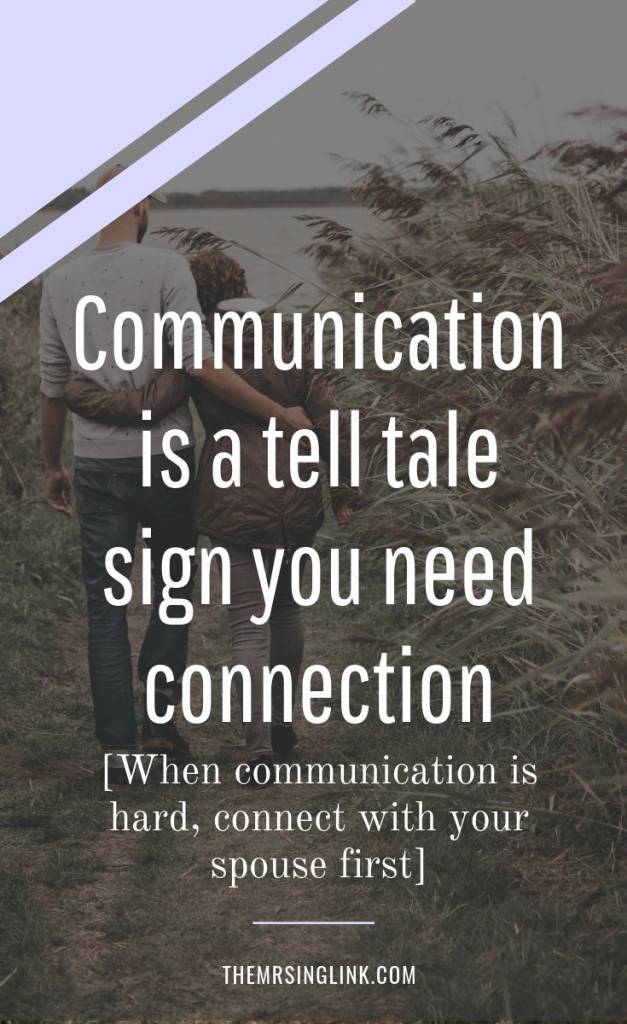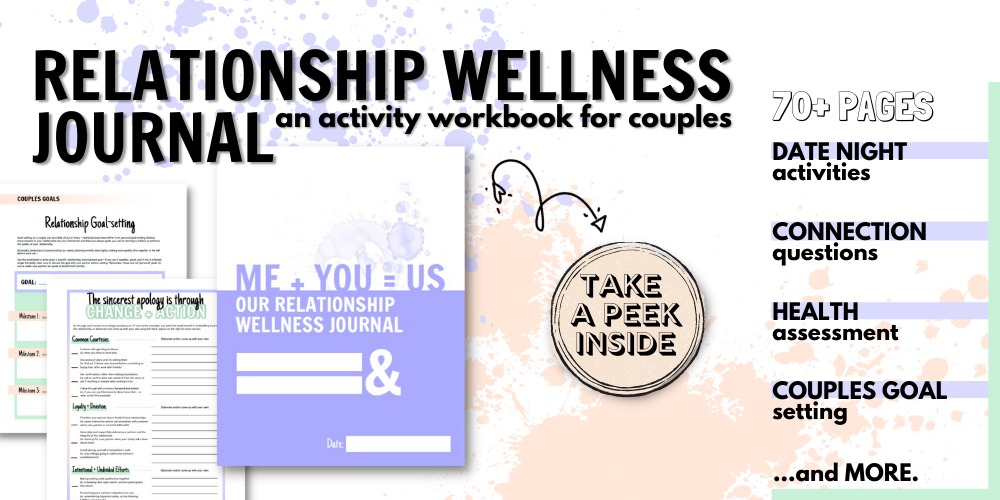Crazy thought, right?
It took me a while to grasp this understanding, but if you think about it it actually does make the most sense. Everywhere you read gives you bullet points on how to improve communication with your partner (I, too, am guilty – you can read that post here), but the way we communicate as a result is hardly surfaced.
Think of it like baking a cake, but only having instructions that begin with: Mix batter on low speed until creamy, then pour into 9-inch round pan before placing in the oven for 35 minutes.
First off… what are the ingredients and how much, what temperature is the oven, and do I need to baste the pan with butter or use wax paper? I need all of that information first, or I’m about to bake a disaster I didn’t intend on making. And because that makes complete sense, it really got me thinking more clearly that…
In relationships connection defines how well we communicate, but instead we communicate as a way to feel connected.
The problem is we are constantly drilled with communication techniques that are meant to help better understand and send the right message to your partner. You’re pressing the right button to turn on the TV, but the power cord isn’t plugged in.
So it would be fair to say that most distressed couples who are having difficulty communicating are likely experiencing disconnection. That’s because communication isn’t strictly based on wordage, but also an emotional state. And if you’re finding difficulty communicating with your spouse, the focus may need to be on connection first.

If Communication Is Hard, Connect With Your Spouse First
communication can begin to feel manipulative
While that may be far from your intentions, your emotional state can certainly make it seem that way. The goal of communication as a result of connection is being able to understand each other.
In disconnection, common communication techniques may come across manipulative and lecturing – kind of like when a therapist impassively and mechanically asks you during a session, “…and how does that make you feel?” It’s what they’re taught to ask, almost automatic and disingenuous, because they’re looking for a specific response… not necessarily to understand you.
To your spouse it can feel the same way – like you are trying to get them to do what you want. Just because you know the proper communication techniques, the message you’re sending may not always be interpreted when you factor in disconnection.
stonewalling isn’t always related to poor communication skills

One thing to remember – it may not always be both partners experiencing disconnection.
If you or your partner tends to shut down during conflict, or stonewalls during a heated argument, it’s not always due to personality, character flaw, or lack of communication skills. It could be disconnection, which can actually cause a feeling of insecurity and loneliness. Some resort to stonewalling simply because they may not feel understood or heard. And when issues are over-communicated in the relationship, it can make couples feel even further disconnected.
[Related Read: “He won’t listen to me!” (10 Tactics to being heard in your relationship)]
The same goes for other negative ways you might communicate with your spouse, such as using harsh words, tone or criticism. Inflicting pain may not be the intention here, but the reason couples may resort to yelling, name calling, victim-blaming or stonewalling is to send an emotional message to their partner.
Disconnection changes the way in which communication is given and received, so it’s important to take note if you’re experiencing a spike in conflict, or disagreements that turn into long, drawn out and heated arguments.
connecting to communicate requires letting go of your ego
That’s just it – I often see the puffed up chests of ego on both sides. Yet it is often denied.
Many times ego is a reaction to ineffective communication. That feeling of rejection can have a pretty powerful effect on connection and the ability to be vulnerable. It’s also denial of change because you believe your spouse is the problem, or that your spouse should change first.
That’s ego.
The way I see it is couples won’t always be on the same page – forcing that will only make things worse. But when you have two people who realize that self-pride only holds you back in your relationship, connecting and communicating becomes easier to manage when it naturally slips out of its lane.
Yes, ideally the best communication works when it’s mutual, but in order to connect in your relationship you also must relinquish your pride.
disconnection affects your ability and willingness to empathize
Since communication has to do with our emotional state, negative feelings we have from disconnection are also reflected. And when you consider all the above together, disconnection can compromise your ability to listen, understand, validate and empathize with your spouse.
Personally I think ability coincides with refusal – again, referring back to ego – when in a state of disconnection. But in the midst of emotional insecurity, distance, discontent and unfamiliarity… who can truly empathize with someone that suddenly seems foreign to them?
With that in mind, you can’t expect communication to be the fix-all or go-to for finding a connection.
Let it be no secret, there are certainly times where I feel disconnected with my husband. And when we, or one of us, feel disconnected is where we begin to grow apart. Sometimes I’m left asking myself, “Who is this person? What happened?” I know this because I will feel resentment towards him for things I am usually open, understanding and compassionate about.
It will almost feel as if we’re no longer in it together, but living out our lives separate.
As a newlywed, this feeling was terrifying – that this shouldn’t be happening. But I also know this negative feeling is not solely his doing or his intent, and that this phase is only temporary as long as I recognize and see to it.
So it’s also important to be able to acknowledge when you feel disconnected from your spouse, even when they may not feel the same.
[mailerlite_form form_id=6]
connection needs to be an on-going goal
If you can reflect on good times in your relationship, then you were experiencing a connection. And if you were experiencing a connection, you were likely communicating effectively in your relationship. Sure a tiff here and there, but overall you were both able to come together and work through those obstacles.
So it isn’t necessarily that communication is the number one priority (though it is crucial), but the connection with your spouse. Because when you’re connected, you’re also bonded emotionally, which has a stronger impact on how well and effectively you communicate together.
[pt_view id=”cb66511r8f”]
